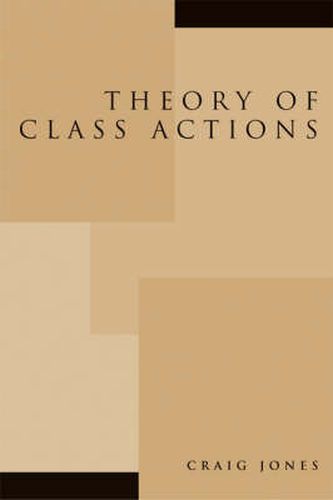Readings Newsletter
Become a Readings Member to make your shopping experience even easier.
Sign in or sign up for free!
You’re not far away from qualifying for FREE standard shipping within Australia
You’ve qualified for FREE standard shipping within Australia
The cart is loading…






In Theory of Class Actions , Craig Jones provides a complete and comprehensive defence of the use of the class action for the resolution of mass tort claims. He explodes several popular myths regarding class actions including the notions that they infringe on litigative autonomy, they blackmail defendants, they pay too much to lawyers, and they are only effective for numerous, low-value claims. Jones argues that legislatures’, and more particularly courts’, use of the device has been haphazard, unprincipled, and in large measure ineffective at realizing the principle functions of tort law-reduction of the overall costs of accidents through optimal deterrence and compensation. In response he sets out principles that might be followed by courts or legislatures in assessing the certification of proposed class actions, and in designing procedures to facilitate optimal realization of policy goals.
$9.00 standard shipping within Australia
FREE standard shipping within Australia for orders over $100.00
Express & International shipping calculated at checkout
Stock availability can be subject to change without notice. We recommend calling the shop or contacting our online team to check availability of low stock items. Please see our Shopping Online page for more details.
In Theory of Class Actions , Craig Jones provides a complete and comprehensive defence of the use of the class action for the resolution of mass tort claims. He explodes several popular myths regarding class actions including the notions that they infringe on litigative autonomy, they blackmail defendants, they pay too much to lawyers, and they are only effective for numerous, low-value claims. Jones argues that legislatures’, and more particularly courts’, use of the device has been haphazard, unprincipled, and in large measure ineffective at realizing the principle functions of tort law-reduction of the overall costs of accidents through optimal deterrence and compensation. In response he sets out principles that might be followed by courts or legislatures in assessing the certification of proposed class actions, and in designing procedures to facilitate optimal realization of policy goals.